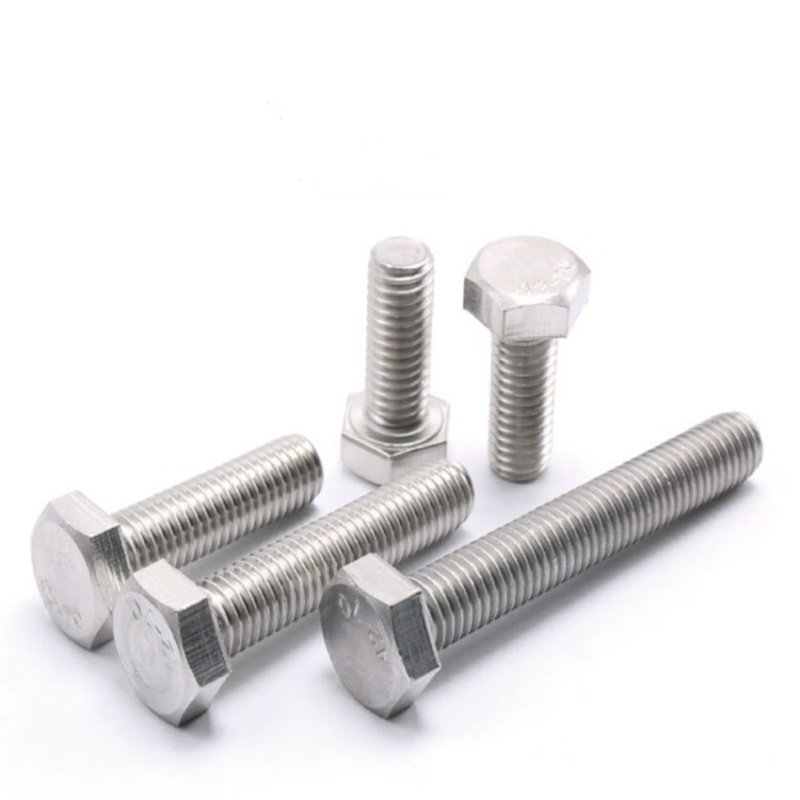In chemical processing plants, safety, reliability, and durability are the top priorities. Every part of the equipment, including fasteners, plays a key role in ensuring smooth and safe operations. Among different types of fasteners, stainless steel 316 bolts and nuts are highly preferred for such environments. Their resistance to corrosion, strength, and long-lasting performance make them the ideal choice for harsh chemical industries.
This blog explains the main benefits of using stainless steel 316 bolts and nuts in chemical plants, along with their importance, features, and reasons why industries rely on them.
Why Stainless Steel 316 is Special
Stainless steel 316 is an austenitic steel grade that contains molybdenum. This element enhances its resistance to corrosion, especially against chlorides, acidic chemicals, and saltwater. While standard 304 stainless steel is also popular, grade 316 offers higher protection and strength, making it perfect for environments exposed to aggressive chemicals.
Key properties of stainless steel 316:
- Excellent resistance to corrosion in acidic and chloride-rich environments.
- High strength at both high and low temperatures.
- Durability in extreme industrial conditions.
- Low maintenance requirements.
When fasteners like stainless steel 316 bolts are made from this material, they provide unmatched reliability and longevity in chemical industries.
Benefits of Stainless Steel 316 Bolts and Nuts in Chemical Plants
1. Superior Corrosion Resistance
Chemical plants handle acids, solvents, alkalis, and other aggressive substances daily. Ordinary bolts often fail when exposed to such chemicals, leading to leaks, breakdowns, and safety risks.
Stainless steel 316 bolts and nuts resist these harsh conditions. Their molybdenum content provides an additional layer of protection against corrosion, even when exposed to chlorides or high humidity. This ensures the fasteners remain strong and intact for years.
2. Longer Lifespan
Replacing bolts and nuts frequently in chemical plants is costly and time-consuming. Using stainless steel 316 bolts reduces the need for constant replacement. Their durability ensures a longer service life compared to regular steel fasteners.
This benefit directly reduces maintenance costs and improves plant efficiency.
3. Strength and Reliability Under Pressure
Equipment in chemical processing plants often operates under high pressure and temperature. Fasteners must hold components tightly without loosening or breaking.
Stainless steel 316 bolts and nuts are designed to withstand these extreme conditions. They maintain their strength and do not deform or fail easily, ensuring that the equipment continues to operate safely and efficiently.
4. Resistance to Extreme Temperatures
Chemical plants often involve processes with very high or very low temperatures. Many metals become brittle or weak in such conditions, but stainless steel 316 retains its mechanical properties.
Whether exposed to boiling acids or cryogenic environments, stainless steel 316 bolts remain reliable. This makes them an excellent choice for diverse chemical processing applications.
5. Low Maintenance Requirements
Fasteners made from lower-quality materials often need frequent cleaning, coating, or replacement due to rust or chemical damage. This adds extra work and cost to maintenance teams.
Stainless steel 316 bolts and nuts require minimal maintenance. Their natural resistance to rust and corrosion reduces the need for protective coatings or constant inspections, making them both time-saving and cost-effective.
6. Safety and Compliance in Harsh Environments
Safety is a major concern in chemical processing plants. A failed fastener can cause leakage of hazardous chemicals, equipment breakdown, or even accidents.
By using stainless steel 316 bolts, plant operators can ensure compliance with safety standards. These fasteners are tested and proven to perform in tough conditions, giving industries peace of mind.
7. Versatility in Applications
Stainless steel 316 bolts and nuts can be used in many areas of a chemical plant:
- Reactors
- Pressure vessels
- Piping systems
- Storage tanks
- Heat exchangers
Their versatility makes them a one-solution choice for industries where reliability is non-negotiable.
8. Cost-Effectiveness in the Long Run
While stainless steel 316 fasteners may cost more initially compared to standard steel, their long-term benefits outweigh the investment. Reduced maintenance, fewer replacements, and increased safety all contribute to lower overall costs.
Thus, industries view them as a cost-effective solution in the long term.
The Role of 316 Stainless Steel Bolts Manufacturers and Exporters
Chemical plants depend on reliable supply chains for critical components like fasteners. 316 stainless steel bolts manufacturers provide a wide range of bolt types such as hex bolts, carriage bolts, and stud bolts, designed to meet industry requirements.
On the other hand, a 316 stainless steel bolts exporter ensures global availability of these high-quality products. Their role is crucial in meeting the demand of chemical industries worldwide, where safety and performance cannot be compromised.
By choosing trusted 316 stainless steel bolts manufacturers, industries can ensure that the fasteners meet international standards and perform well in demanding environments.
Conclusion
In chemical processing plants, the smallest component can make the biggest difference. Stainless steel 316 bolts and nuts offer unmatched resistance to corrosion, long life, and reliable performance under extreme conditions. They minimize maintenance, reduce risks, and ensure compliance with safety standards.
With the support of reliable 316 stainless steel bolts manufacturers and global supply from a 316 stainless steel bolts exporter, industries can access the best fasteners for their needs.






